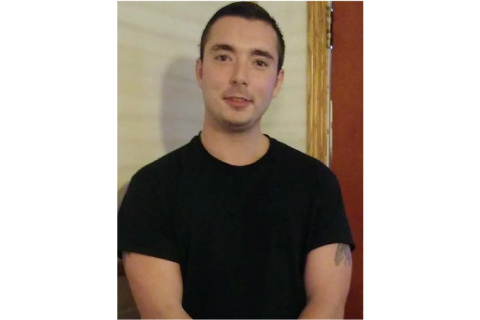OTTUMWA — On August 28, 2019, Timothy William-Michal Fortney was reported missing to the Ottumwa Police Department by his mother. At the time he was reported missing, Fortney had not been seen for over a year.
In February 2022, authorities recovered skeletal remains on the banks of the Des Moines River near Keosauqua, Iowa. Anthropological analysis suggested that the femur was likely from an adult male, and its condition was consistent with forensic, rather than archaeological, significance. Subsequent searches of the area did not yield more remains or any other evidence. Initial attempts at DNA extraction and traditional DNA testing were unsuccessful, and the case was entered into the National Missing and Unidentified Persons System (NamUs) as UP90738. The man became known as Des Moines River John Doe.
When the Lincoln County Coroner’s Office in Missouri announced that they had successfully partnered with Southeast Missouri State University (SEMO) and Othram to identify 15-year-old Helen Groomes (https://dnasolves.com/articles/helen-groomes-missouri/) of Ottumwa, Iowa, investigators from the Ottumwa Police Department recognized the value of applying the latest DNA technology to complex cases, including those involving poorly preserved remains. Des Moines River John Doe’s remains were transported to Southeast Missouri State University, where, under the supervision of Drs. Jennifer Bengtson and Jim McGill, advanced Anthropology and Chemistry students applied non-destructive chemical analyses as part of a larger research project focused on assessing likelihood of DNA preservation from skeletal remains.
With the necessary casework costs paid by SEMO Anthropology, the forensic evidence was then submitted to Othram’s laboratory in The Woodlands, Texas so that advanced DNA testing could be used to name the unknown man. Othram’s scientists successfully developed a DNA extract from the evidence. Although the DNA was highly degraded, a comprehensive DNA profile was built for the man using Forensic-Grade Genome Sequencing®. While SEMO students learned valuable investigative skills by searching missing persons databases and conducting records research, Othram’s in-house forensic genetic genealogy team worked to develop new leads in the case which corresponded with missing persons leads that investigators were pursuing.
The investigation led Ottumwa Police Department investigators to collect reference samples from possible family members of the man. The unknown man’s DNA profile was compared to the DNA profile of the possible relative using Othram’s KinSNP® rapid relationship testing. This investigation confirmed the identity of Des Moines River John Doe as Timothy William-Michal Fortney. Mr. Fortney was reported missing from Ottumwa, Iowa on March 17, 2018. At the time of his disappearance, Fortney was staying at the Ottumwa Residential Facility. The circumstances of Timothy Fortney’s disappearance and death are the subject of an ongoing investigation.
If anyone has information regarding the death of Timothy Fortney, they are requested to contact the Ottumwa Police Department Investigations Unit at (641) 683-0661.




